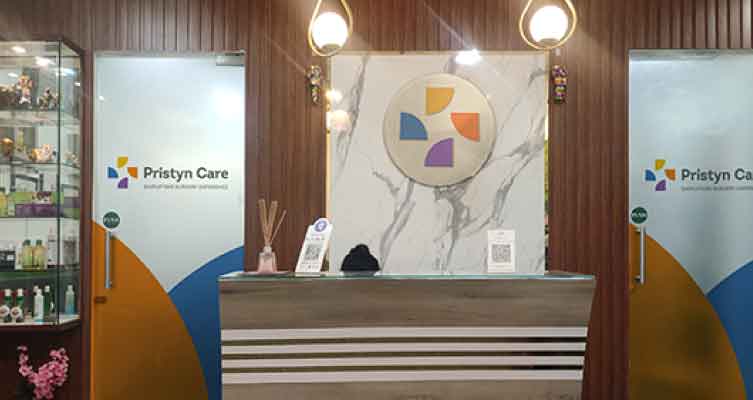
Ghaziabad
USFDA Approved Procedures
Minimally invasive. Minimal pain*.
Insurance Paperwork Support
1 Day Procedure




Thyroidectomy diagnosis and procedure
Proper diagnosis is necessary to provide the right treatment for full recovery without recurrence. The diagnosis begins with a proper medical history to determine the cause of the disease. Once the history is taken, the doctor will perform several diagnostic tests to determine the exact nature of the disease.
Depending on the type and severity of the patient’s symptoms, the doctor may order additional diagnostic tests such as antibody tests, endoscopy, etc.
Depending on the cause and severity of the symptoms and the patient’s and surgeon’s preference, the surgeon will determine the amount of the thyroid tissue to be removed. Types of surgical techniques for thyroidectomy are:
At Pristyn Care, you can avail expert consultation with the best ENT surgeons near you for thyorid treatment and thyroidectomy in Ghaziabad.
Best ENT Clinics For Thyroidectomy
Pristyn Care is one of the most advanced surgery providers for Thyroidectomy for better results, quick recovery and high success rate without any significant complications.
At Pristyn Care, we have ENT surgeons with 8-10 years of experience in performing advanced Thyroidectomy surgery with successful results.
Thyroidectomy surgery at Pristyn Care has a success rate of at least 85-90%, thanks to our advanced treatment facilities, expert surgeons, and state-of-the-art treatment centers.
At Pristyn Care, you can avail pre and postoperative consultations along with diagnostic endoscopy for diagnostic confirmation and treatment planning. You will also receive follow-up checkups with your ENT surgeon after surgery.
Thyroid operation cost in Ghaziabad ranges from Rs. 75,000 to Rs. 90,000. However, this cost is very subjective and can vary based on a variety of factors such as type of surgery, amount of tissue removed, severity of the condition, etc.
A thyroidectomy can be of the following types:
Yes, thyroid problems can recur, although the likelihood of the thyroid gland growing back or the recurrence of benign/carcinogenic disorders of the thyroid is about 5-20% depending on the disease.
Once your surgery is scheduled, you need to take some precautions to ensure there are no postoperative complications. If you are taking any blood thinners or clotters, you may need to stop them 2-3 days before the surgery.
Since the surgery is performed under general anesthesia, you cannot eat or drink anything after midnight before the surgery. You should also prepare a 1-2 day hospital bag and arrange for someone to drive you home after the surgery.
Barring any complications, patients are discharged within 1-2 days of the surgery and they can return to work within a week, but for strenuous physical activity, they should wait for at least 2-3 weeks. Complete recovery can take about 3-4 months.
Hemithyroidectomy (partial thyroidectomy) is usually preferred over total thyroidectomy as it reduces the patient’s overall need for TSH, thyroxine, and other supplements, however, after a total thyroidectomy, patients need daily hormone supplements to replace the thyroid’s natural function.
Hemithyroidectomy is usually performed if the patient has hyperthyroidism or a nodule/growth attached to just one lobe of the thyroid gland to treat the thyroid issue while preserving thyroid function.
Thyroid removal surgery, even total thyroidectomy, has no effect on life expectancy. While the quality of life of the patient may be slightly lower following the surgery, the after-effects of the treatment are easily manageable through medicines and supplements.
Depending on the length of the scar, the surgical technique, and the surgeon’s expertise, the surgical scar from a thyroidectomy usually fades away within 3-6 months
With the advancement in medicine, thyroidectomy has become a very safe procedure. However, there are some thyroidectomy complications that can still occur, such as:
You should follow the given tips to improve your recovery after a thyroidectomy surgery: